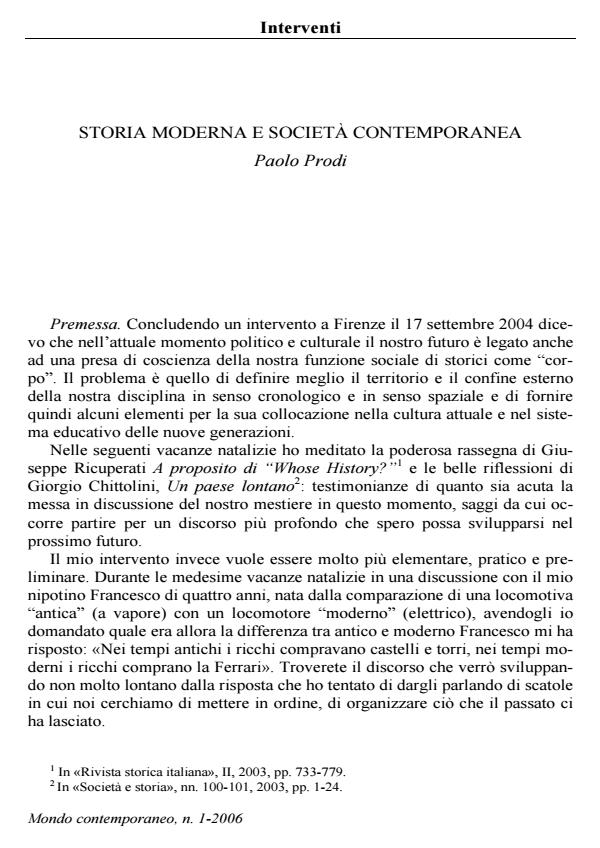Storia moderna e società contemporanea
Titolo Rivista MONDO CONTEMPORANEO
Autori/Curatori Paolo Prodi
Anno di pubblicazione 2006 Fascicolo 2006/1 Lingua Italiano
Numero pagine 11 P. Dimensione file 51 KB
DOI
Il DOI è il codice a barre della proprietà intellettuale: per saperne di più
clicca qui
Qui sotto puoi vedere in anteprima la prima pagina di questo articolo.
Se questo articolo ti interessa, lo puoi acquistare (e scaricare in formato pdf) seguendo le facili indicazioni per acquistare il download credit. Acquista Download Credits per scaricare questo Articolo in formato PDF

FrancoAngeli è membro della Publishers International Linking Association, Inc (PILA)associazione indipendente e non profit per facilitare (attraverso i servizi tecnologici implementati da CrossRef.org) l’accesso degli studiosi ai contenuti digitali nelle pubblicazioni professionali e scientifiche
The author deals with the concept of modern history and agrees with its definition and use given by the Anglo-Saxon and German historiography. Therefore we may distinguish between an early modern history which consists in the shaping of modern world, and the late modern history with the rise of the market, of the State and of liberalism and democracy. He argues that modern history is essentially European history which is now over. The role of Europe in modern history is a matter of fact, and it has nothing to do with any idea of European or Western superiority. In fact Prodi underlines how Europe in the XV century was a sort of appendix of Asia. He thinks that modern history can be considered the age of the paper, which for historians it means written documents and archives. The computer might be the tool of the new frontier of history, the contemporary history. He argues then with the American information scientist Nicholas Negroponte who said «I have always hated history. It is a useless and heavy burden». The author finally emphasizes the role of history in our telematic society arguing that historical knowledge is essential to understand what luggage we go with in the globalized world.;
Paolo Prodi, Storia moderna e società contemporanea in "MONDO CONTEMPORANEO" 1/2006, pp , DOI: